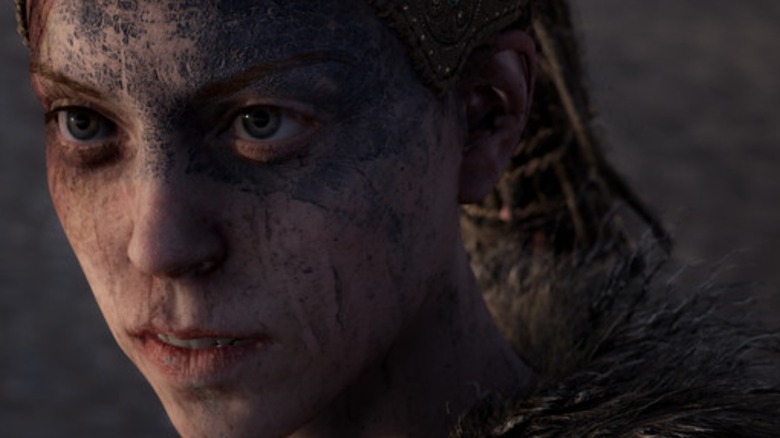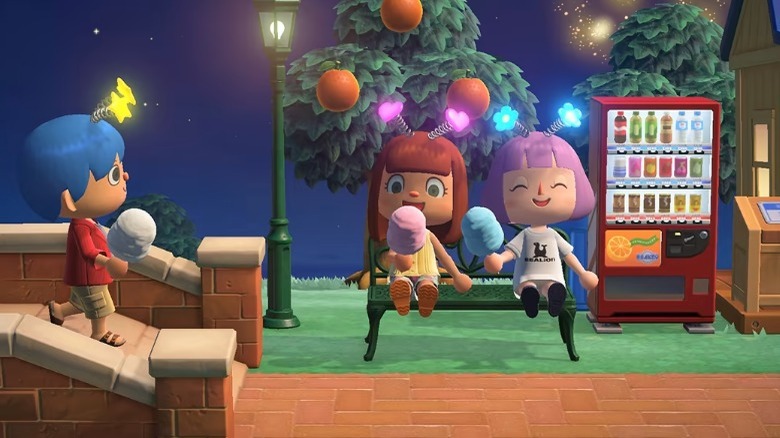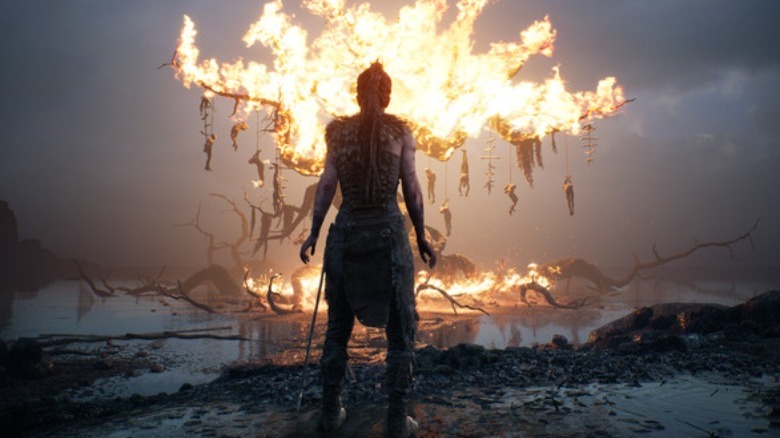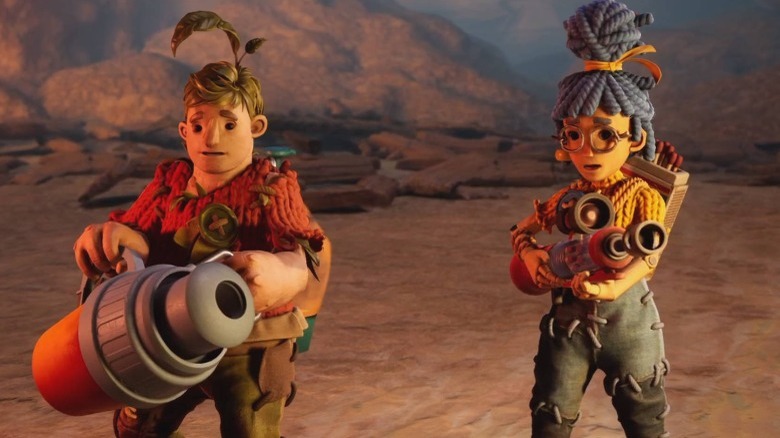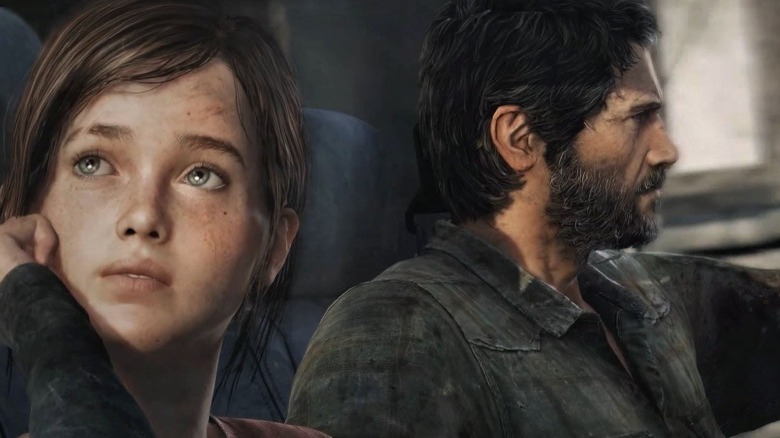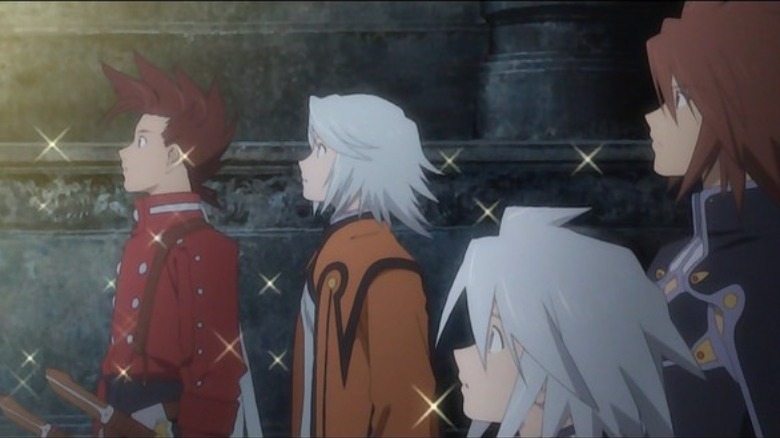Video Games That Changed The Lives Of Players
Video games can have their drawbacks if someone's addicted to them, but they can also be really good for players, too. Studies are coming out more frequently as scientists and psychologists are understanding that video games can actually be helpful for the mind. Countless people across the world have had their lives changed because of video games, such as esports players or massive content creators that make their living on Twitch or YouTube.
It's not just superstars that have their lives touched by the gaming industry. Every day, millions of people sit down to play games and are directly letting that game influence them for the time they're playing. For some people, these moments of gameplay have tremendous effects across their entire lives, outliving the time they spent in front of the screen.
Games can do a number of different things to interact with and touch players, whether it's portraying mental illnesses or disabilities in a way that allows players to relate or showing off female protagonists that give players someone to look up to. All of the games on this list have touched players in ways that completely changed their lives for the better.
Animal Crossing
The "Animal Crossing" franchise has been popular since the first game was released on the GameCube, and subsequent entries to the series on the DS, 3DS, and Nintendo Switch have been pretty successful overall. YouTube user Boldly Wired explained that "Animal Crossing: New Leaf" on the 3DS helped them through their depression.
To preface things, Boldly Wired explained that depression is more than just being sad and then getting happy. In fact, their experience with it revolved just as much around lack of motivation to do daily tasks. "Animal Crossing" gave them something to look forward to doing on a daily basis, as the game progresses in real-time. From gathering daily items to slowly raising their friendship levels with the animals in his town, there was always something for Boldly Wired to do. Additionally, the game gave them a good balance when life didn't: "A bit of good, a bit of bad," whereas life can seem all bad at times.
Eventually, the game gave Boldly Wired time to get through his lowest moments. It also gave him the courage to go make changes in the real world just as he did in the game. "Animal Crossing" helped him become who he wanted to be, and he was able to set the game down and reverse the bad habits he had fallen into.
While Boldy Wired explained these things, he also was quick to point out that video games aren't a substitute for professional help.
Hellblade: Senua's Sacrifice
Some mental illnesses are incredibly difficult to sympathize with for people who don't understand what's going on. "Hellblade" was a game that took psychosis, a condition in which people struggle to differentiate between reality and things in their mind that oftentimes results in hallucinations, and made it so that players can attempt to understand what it's like and sympathize with those affected.
In the game, the main character has to battle the demons in her mind quite literally, and there are moments where the player can't tell if what's happening is real or in Senua's imagination. This changed the lives of numerous players, as Clinical Consultant for "Hellblade: Senua's Sacrifice" Dr. Paul Fletcher explained. In the keynote address for the 2019 International Games Summit on Mental Health Awareness, Fletcher showed off two specific responses to the game.
In one, a player explained that they had schizophrenia and that no media had accurately portrayed hallucinations before "Hellblade." This meant a lot to them as they now have something to show close family and friends to show "how scary having hallucinations really is." Another response was shown from a parent of someone who played "Hellblade." In it, they explained that after playing the game, their child wanted to go get help because he was planning on committing suicide and rethought it after experiencing "Hellblade."
If you or anyone you know is having suicidal thoughts, please call the National Suicide Prevention Lifeline at 1-800-273-TALK (8255).
It Takes Two
When it comes to multiplayer games, "It Takes Two" might be the most intricate of them all. The game quite literally is co-op only. The plot of the story starts with two parents who decide to get divorced. Their young daughter makes dolls out of them, wishing that they'll stay together, and the couple somehow transforms into the dolls. From there, they have to work together to return to their normal selves.
Stephanie Minor, a journalist for The Gamer, explained that this game meant more to her than any other game had in her life. At the time she played it, she and her husband were struggling with their marriage. After deciding to go out of their way to make the marriage work, they decided to play "It Takes Two" together as a way to bond.
The content of the game hit home, and the gameplay forced the two to work together and communicate in order to progress. Not only that, but Minor explained that the game made her laugh and improved her mood — something that she hadn't felt in quite a while. While "It Takes Two" wasn't the only thing that saved their marriage, it was definitely a tool that they used to enjoy each other's company and bond, which was how they began to save their relationship.
The Last of Us
YouTuber Downward Thrust explained in a video that "The Last of Us" actually pulled him out of a video game addiction. He started the video by explaining that video game addiction had caused him to lose everything: his money, his home, his friends, and even his girlfriend. He hit rock bottom because of games, yet a game was able to help pull him out of the bad spot he'd landed in.
He explained that "The Last of Us" made him realize that he couldn't live life the way he was living it, playing games nonstop in the loneliness of his dark room. He didn't want to be alone, and the two main characters in the game showed him that he didn't want to be alone for the rest of his life and that he craved "human connection." He explained that Joel, one of the main characters, was able to help himself and fight his inner demons with the help of Ellie, and that the two working as a team is what allows Joel to overcome dark times. Seeing that portrayed in a video game made him want to do the same. While he went on to say that there was a chance something else might've done the same thing later in his life, "The Last of Us" was what Downward Thrust needed to pull himself out.
Tales of Symphonia
Sometimes games can change people's lives by simply opening up their way of thinking. For at least one person, "Tales of Symphonia" was the game that did just that when they were a young teen. Megumi Yamamoto explained on Quora that the game changed her life because of the themes it exposed her to, which were "discrimination, [religious] persecution, systematic oppression, reverse discrimination, [and] sacrificing one population for the benefit of another."
These aren't the standard themes that most middle schoolers are learning about, and Yamamoto felt like the game's attention to real-world issues helped her out later in life. Additionally, "Tales of Symphonia" allowed her to sympathize with characters like never before, including the main villain. This was the first time Yamamoto did this, and to have done it at such a young age helped her when she got older.
"Tales of Symphonia" was beloved by critics and fans alike. One review from Game Chronicles called it a "story rife with more story arcs, plot twists, and surprising revelations," which created an amazing and addicting game that was able to teach a few life lessons along the way.

